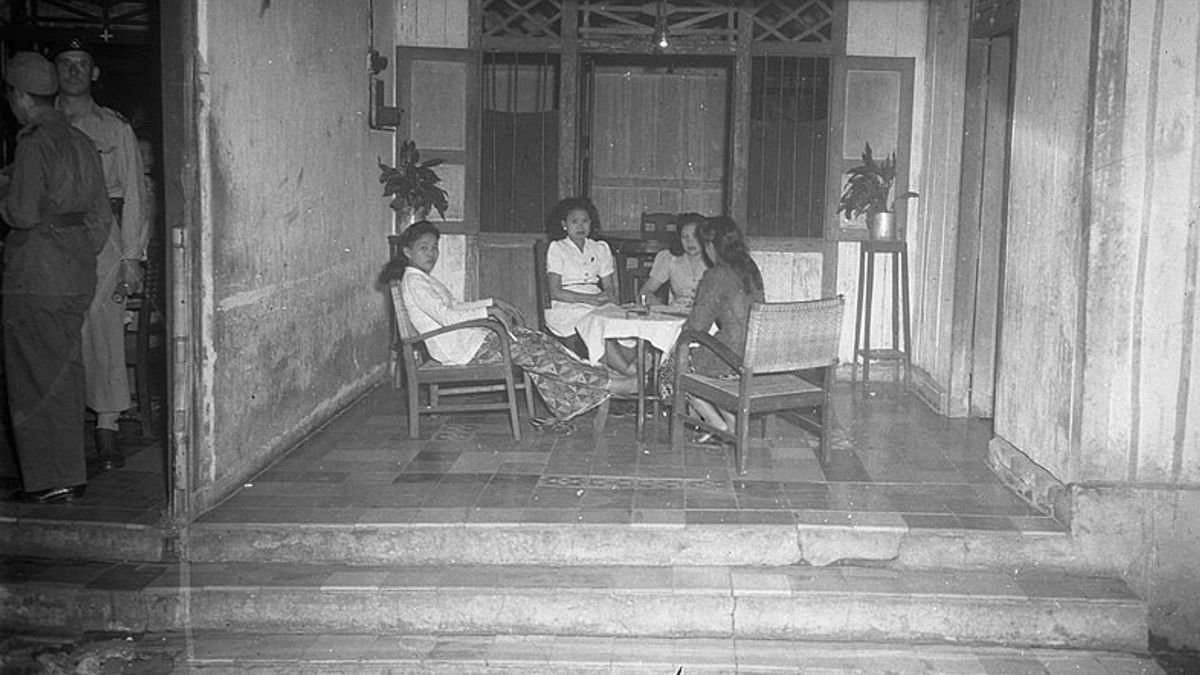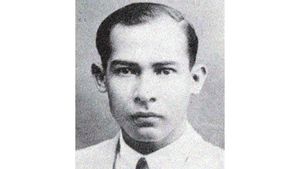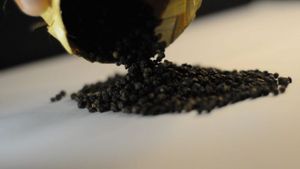JAKARTA - The initial phase of Dutch colonial life in the colony was not easy. Those who came to Batavia were dominated by men without the company of a wife. Problems arose. The biological needs of the Dutch were not well accommodated.
Prostitution became popular because of it. Prostitution just transformed into a daily ritual. Everything went well until the venereal disease approached. The Dutch were really afraid. As a precaution, a new tactic was applied: keep a concubine.
The Dutch trading airline VOC's desire to create a civilized colony is unbearable. However, that desire failed miserably. De Heeren Zeventien (Gentlemen Seventeen) does not want it. The shareholders who live in the Netherlands are reluctant to accept the delivery of women from their good families. Moreover, not many women want to live -- in Dutch languages -- in an unknown country.
Long journeys and death are big risks that must be faced. VOC can't do anything. Even though they have threatened Heeren Zeventien regarding the moral damage to the colony. The answer to the will never come. Because Heeren Zeventien ignores it.

VOC's view is in fact correct. The absence of women, coupled with the prohibition of marrying local women, made prostitution in Batavia thrive. The presence of prostitution began to be detected seven years after Batavia stood, or to be precise in 1625.
After that, brothels began to thrive in all corners of Batavia. Brothel owners were dominated by Chinese and Mardjikers (free slaves).
Every day, the brothel is always crowded with love seekers. The lustful business provides benefits on both sides. Business owners get a lot of benefits. While customers can channel their sexual desires.
“However, what happens more often is that prostitution is closely related to concubinage and self-mortgage. Through the combination of these two things, we get acquainted with the world of blackmail by matchmakers, 'mammies', and brothel owners. After 1633, the chief of the people of Mardjiker Valdero sent some of his female slaves out into the street to prostitute themselves."
“Those women have to bring home at least half a real every day. While on an ecclesiastical visit in 1644, Reverend Rogerius found that 27 of his citizens forced their female slaves into prostitution, but they were dressed in clothes that, although cheap, made them appear as honorable women who were walking around looking for air,” said the historian Hendrik E. Niemeijer in the book Batavia: Masyarakat Kolonial Abad XVII (2012).
Venereal Diseases
The presence of many brothels is a serious problem. Sexually transmitted diseases began to infect the Dutch. Lion king disease (syphilis) and gonorrhea, especially. The spread of the disease was quite fast. Moreover, the brothel is never deserted.
The number of people with venereal diseases is increasing day by day. The military, aka VOC soldiers, became the most victims. The disease lasts forever because the Company is not too concerned with the prevention of venereal disease. They consider prostitution a sinful act.
Many of the Dutch also realized. The brothel is the source of the problem of venereal disease. They are also looking for solutions to problems. So that the distribution of lust is safe. The tactic was played. Keeping a mistress is the answer.
Concubines kept by the Dutch usually had a dual role. Concubines who are usually called 'nyai' can concurrently work in all fields in the master's house. From kitchen matters, wells, to mattresses. However, the bond of the relationship is carried out outside of marriage. The Dutch master could not marry his mistress for reasons of social status to race.
Concubinage is a solution so as not to get venereal disease. In fact, this option of concubine remained until the VOC was replaced by the Dutch-East Indies colonial government. Concubinage also became a daily practice in the Dutch East Indies (now: Indonesia).

“During the period 1888-1911, the percentage of male military personnel who kept a 'nyai' remained around 22 percent, even though the number of marriages increased. In the army, a 'nyai' was considered a blessing, as it kept soldiers away from prostitutes and reduced their risk of contracting venereal diseases.”
“Like the situation of the masters on the plantations, the headquarters staff supported the 'nyai' way of life and opposed the legal marriage, because they thought that the consequences of having a wife of order and discipline would disappear forever from the barracks. Moreover, bachelor soldiers cost less to live and do not require various benefits. Whatever the considerations of the military leadership to maintain the nyai system, opposition to this system will still exist, especially from the church," concluded Tineke Hellwig in the book Citra Kaum Perempuan di Hindia Belanda (2007).
VOIR éGALEMENT:
The English, Chinese, Japanese, Arabic, and French versions are automatically generated by the AI. So there may still be inaccuracies in translating, please always see Indonesian as our main language. (system supported by DigitalSiber.id)














